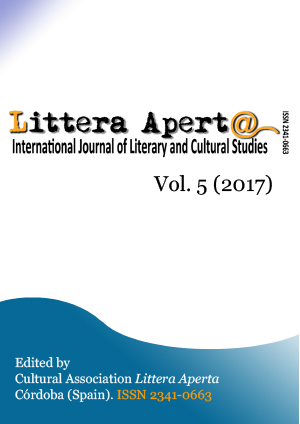IMPERMANENCE / MUTABILITY: READING PERCY BYSSHE SHELLEY’S POETRY THROUGH BUDDHA TRANSITORIEDAD / MUTABILIDAD: LECTURA DE LA POESÍA DE PERCY BYSSHE SHELLEY A TRAVÉS DE BUDA
Main Article Content
Abstract
As an ongoing phenomenon, the impermanence of the world has been observed by many people, both in ancient and modern times, in the East and in the West. Two of these authors are Gautama Buddha (an ancient, eastern philosopher from the 6th-5th centuries B.C.) and Percy Bysshe Shelley (a modern Western poet: 1792-1822). The aim of this paper is to examine in the light of Buddhist philosophy what impermanence means or looks in a selection of Shelley’s poems, after considering that this philosophy was not alien to the Europeans of the 18th and 19th centuries. Buddhism, seeing impermanence (anicca) as the foundation of the world, both acquiesces to it and urges the individuals to sway with its ebb and flow. Shelley mainly falters in the incorporation of the phenomenon into his mindset and his poems. However, he often shows a casual acceptance of it; and even, in a few cases, he presents it with a positive assessment.
Keywords: Buddhism, Shelley, impermanence, mutability, transience, anicca
Downloads
Article Details
Authors who publish with Littera Aperta agree to the following terms:
- Authors retain copyright and grant the journal right of first publication with the work simultaneously licensed under a Creative Commons Attribution 4.0 International License that allows others to share the work with an acknowledgement of the work's authorship and initial publication in this journal.
- Authors are able to enter into separate, additional contractual arrangements for the non-exclusive distribution of the journal's published version of the work (e.g., post it to an institutional repository or publish it in a book), with an acknowledgement of its initial publication in this journal.
- Authors are permitted and encouraged to post their work online (e.g., in institutional repositories or on their website) prior to and during the submission process, as it can lead to productive exchanges, as well as earlier and greater citation of published work (see The Effect of Open Access).
